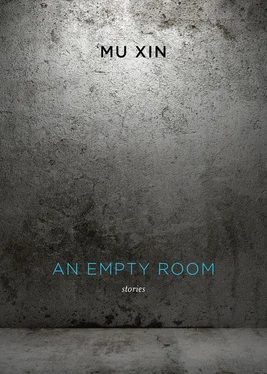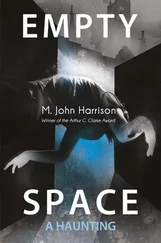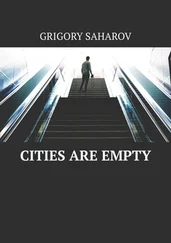Mu Xin - An Empty Room
Здесь есть возможность читать онлайн «Mu Xin - An Empty Room» весь текст электронной книги совершенно бесплатно (целиком полную версию без сокращений). В некоторых случаях можно слушать аудио, скачать через торрент в формате fb2 и присутствует краткое содержание. Год выпуска: 2011, Издательство: New Directions, Жанр: Современная проза, на английском языке. Описание произведения, (предисловие) а так же отзывы посетителей доступны на портале библиотеки ЛибКат.
- Название:An Empty Room
- Автор:
- Издательство:New Directions
- Жанр:
- Год:2011
- ISBN:нет данных
- Рейтинг книги:3 / 5. Голосов: 1
-
Избранное:Добавить в избранное
- Отзывы:
-
Ваша оценка:
- 60
- 1
- 2
- 3
- 4
- 5
An Empty Room: краткое содержание, описание и аннотация
Предлагаем к чтению аннотацию, описание, краткое содержание или предисловие (зависит от того, что написал сам автор книги «An Empty Room»). Если вы не нашли необходимую информацию о книге — напишите в комментариях, мы постараемся отыскать её.
In Our Time
An Empty Room
An Empty Room — читать онлайн бесплатно полную книгу (весь текст) целиком
Ниже представлен текст книги, разбитый по страницам. Система сохранения места последней прочитанной страницы, позволяет с удобством читать онлайн бесплатно книгу «An Empty Room», без необходимости каждый раз заново искать на чём Вы остановились. Поставьте закладку, и сможете в любой момент перейти на страницу, на которой закончили чтение.
Интервал:
Закладка:
Mu Xin
An Empty Room
The Moment Childhood Vanished
if a child knows what he should know and does not know what he should not, his childhood will be very happy. But when I was a child, I did not know what I should know, and I knew what I should not, hence all kinds of bewilderments continue to follow me today.
Before I was ten years old, I already knew the nuanced differences between the seven types of Buddhist temples: si, miao, yuan, chan, guan, gong , and an . That year I followed my mother and the whole retinue of my paternal and maternal aunts to Mount Mo-An for a Buddhist service. I didn’t complain when we passed a temple at the foot of the mountain or when we reached another one halfway up. But when we neared the Shizi Mian An (Sleeping Lion Nunnery) close to the peak, I asked, “Is this the place?”
“That’s right, we’re here,” said a porter who was carrying our luggage on a shoulder pole.
I turned to my mother. “So nuns will perform the rites for us?”
“Oh no,” she said, “the leading monk here is a great master. Believe it or not, he’s in charge of eighty-two temples around here.”
I was even more puzzled. “Then, how can he live in a nunnery? The Sleeping Lion An ?”
She was silent, then said softly, “Well, perhaps. . perhaps they recently moved here from somewhere else.”
The temple gate was plain, but once we stepped inside the grandeur expanded: after the First Mountain Pass was the Second Mountain Pass; then there was the Palace of Great Majesty, the dining hall, meditation rooms, and the guest house. Indeed it was a magnificent temple in the ancient style! With so much to explore, I soon forgot the mystery of the temple’s name.
My family never failed to honor the Buddha. It was for the purpose of worshipping our ancestors and burning shu-tou that my mother had decided to make this trip. As far as I could explain then, shu-tou was the written penance sent to the dead ancestors “by water route and by land route,” the entire rite involving an elaborate performance. Or, as I understood it, a kind of bank check with a high monetary value acceptable in the other world, an otherworldly currency for penance. People in the world of Yang supposedly paid for the benefit of the people in the world of Yin. Many monks were involved in this extravagantly observed rite of complicated procedures as if it were a grand drama acted out in sequential segments with monks reciting the scriptures and kowtowing on the ground. In the splendor sustained by bright candles, endlessly burning incense, and incessant Buddhist music and chants, the service continued for seven times seven days and nights in order for the prayers to be completed in a formal fashion.
For a child, it was a curious spectacle to observe at first. But after seven days I grew weary. There was only so much to see on the mountain, and I only had to look at the Buddhist vegetarian meals to feel repulsed. I even got tired of teasing a crazy monk who was locked up in a cave behind the temple. So I sighed deeply, thinking how very difficult it was to release your dead ancestors.
I pestered my mother about going home every day until she replied, “Soon, soon. We’ll go home the day after we receive shu-tou .”
That day was finally about to arrive. I was giddy at the thought of eating regular food, kicking balls, flying kites. At the same time I worried about the instructions I had received from a hunchbacked monk. He had told me that I would kneel in the Palace tomorrow, carrying a wooden plate. He said that my hands should be extraordinarily clean and I should quietly hold the plate while waiting for the head monk to finish his shu-tou chant. Out of frustration I asked, “How long do I have to kneel?”
“About as long as it takes for someone to smoke a cigarette.”
“What brand of cigarette?”
“Something like Golden Mouse or Beauty.”
I felt better, relieved that it wouldn’t take as long as the burning of an incense stick at the altar. I even laughed, imagining the hunchbacked monk hiding in a room and smoking a Golden Mouse or Beauty.
The receiving of shu-tou came and went. It didn’t seem to take as long as smoking a cigarette, but I itched all over while I kneeled, holding the redwood plate while monks’ robes and temple flags surrounded me. I felt it a great injustice that I should be suffering for ancestors whom I had never known. Still, the recitation of a monk standing to my right piqued my interest: “. . aai. . the twenty four altitudes. . aai. . in the Clear Breeze Village of the. . aai Phoenix Tree and Mulberry County in the. . aai Luck River Province in the Capital. . aai. . of the King of the Under. . ai-hi-yi-ai. . world, ai-hi. .”
I was amused. So on the large folded yellow paper called shu-tou was written an address? But what could he mean by the twenty-four altitudes? Was it where shu-tou was sent to or sent from? Was there really an underworld? Was the underworld also measured by altitudes? As I considered these strange thoughts it was over before I knew it. I felt relieved to stand and straighten my back. As soon as I received shu-tou in a large envelope with a large seal on it, I rushed over to my mother.
“There is an address on shu-tou . It’s the twenty-four altitudes in the Clear Breeze Village of the Phoenix Tree and Mulberry County in the Luck River Province. And it’s addressed to the King of the Underworld,” I told her with pride.
My aunts stood around my mother, not letting their opportunity to tease me slip by.
“Aha! A ten-year-old can understand a monk reading scripture. Who knows what lies in store for him in the future!”
“At least he’ll be the favored disciple of a great scholar.”
“Well, it seems he’ll enter the world of Dao and be in charge of eighty-two temples.”
My mother said with a smile, “He should at least know the difference between a village, a county, and a province. Otherwise how can he find his way home?”
I had not meant to show off and felt their teasing was unjust. After all, I knew not only the difference between a village, county, and province — I could also name seven different types of temples.
It was time to go home!
Porters carried our luggage on their backs or with shoulder poles. My female relatives were dressed in bright red and green and draped with lustrous jewelry. I followed everyone out of the gate. Taking a last glance back, I once again saw the lintel inscribed with those words: Sleeping Lion An . How could monks live in this place meant for nuns? Such a temple shouldn’t be so big. And why didn’t my family ask even a single question?
Our family teacher was an erudite scholar who had passed the imperial exam of the Manchu Dynasty with high honors. I was a piece of stone too hard to be carved into any desired shape. As he taught me, I would nod just to make the days go by. It wasn’t that I couldn’t memorize books or write poetic couplets. It was that I always wanted to read books that were classified as inferior. In those years, especially in my family, “forbidden books” covered such a wide range of writings that even Tang and Song poems were excluded — they were simply “not for someone your age.” Precisely for that reason, I particularly enjoyed the sound and sense of two lines of Li Bai from a collection of annotated poetry, which read: “When rain stops the sky clears / Where clouds open colors merge.” One day I was staring at a pale pottery vase on my teacher’s desk and somehow murmured these two lines. My teacher heard and scolded me: “Where did you learn that? Remember, sentimental poems weaken your will!” Frustrated, I suddenly felt that in his dark study the rain would never stop and the sky would never clear. I dipped my middle finger in water and wrote the word “escape,” though I had no strategy as to how to accomplish this. All I could do was watch the character dry up. A sour vindication filled my heart.
Читать дальшеИнтервал:
Закладка:
Похожие книги на «An Empty Room»
Представляем Вашему вниманию похожие книги на «An Empty Room» списком для выбора. Мы отобрали схожую по названию и смыслу литературу в надежде предоставить читателям больше вариантов отыскать новые, интересные, ещё непрочитанные произведения.
Обсуждение, отзывы о книге «An Empty Room» и просто собственные мнения читателей. Оставьте ваши комментарии, напишите, что Вы думаете о произведении, его смысле или главных героях. Укажите что конкретно понравилось, а что нет, и почему Вы так считаете.












